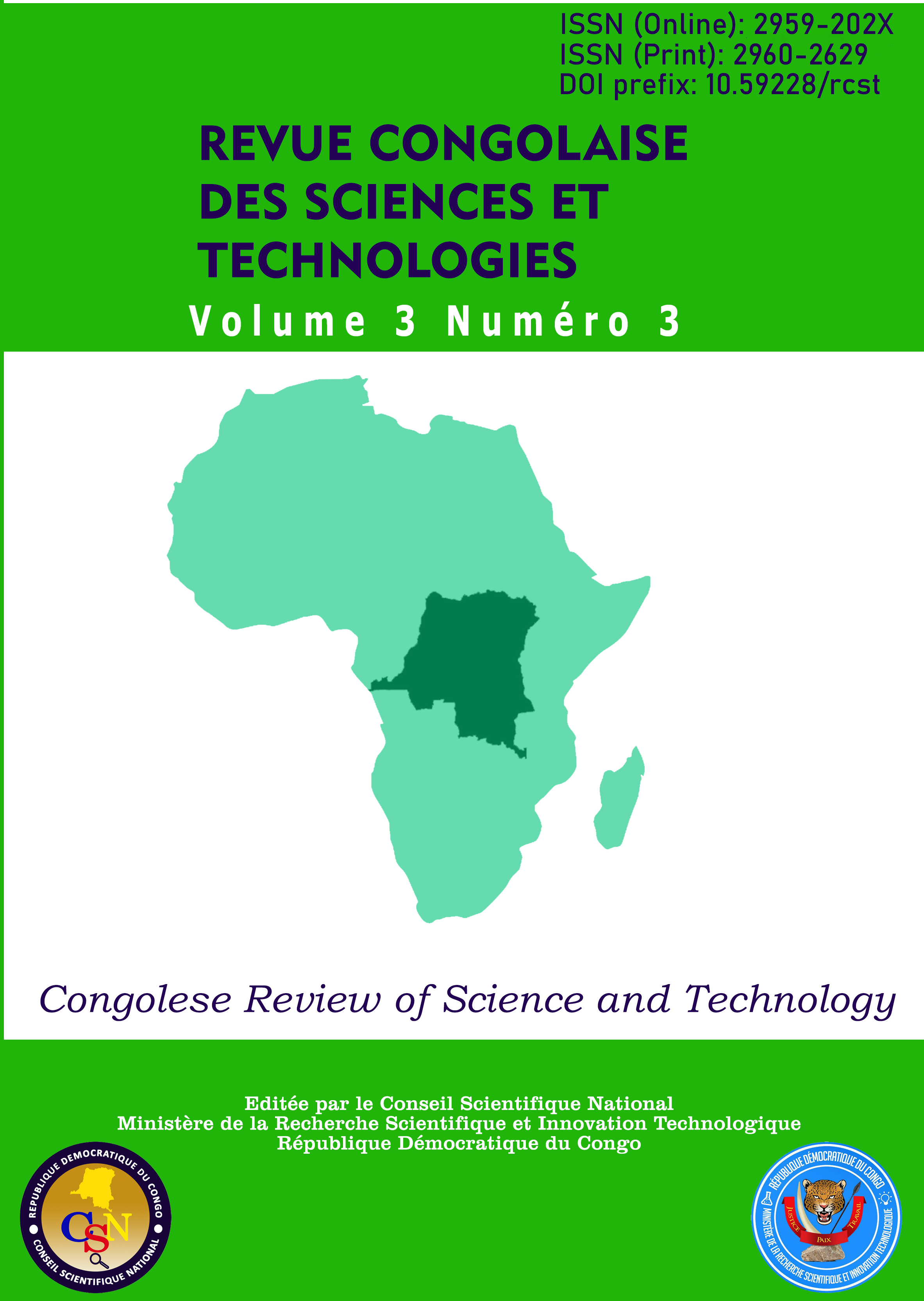Contributing to the development of natural resources in the entrepreneurial spirit of young Congolese people
Main Article Content
Abstract
This study is based on the entrepreneurial intentions of young Congolese who live in an economic environment that is very rich in natural resources but relatively poor in the spirit of entrepreneurship and capitalising on their country's natural resources. Few studies have been carried out into the entrepreneurial intentions of young people in the Congolese context. This is why we wanted to make a contribution in this field by using documentary techniques through an analysis of the literature and the inductive method to arrive at a synthesis. We concluded that the capitalisation of natural resources in the entrepreneurial intention of young Congolese remains an important step for the development of entrepreneurship in the country.
Article Details
Section

This work is licensed under a Creative Commons Attribution-NonCommercial-ShareAlike 4.0 International License.
References
Barbier, E.B. (2010). A Global Green New Deal: Rethinking the Economic Recovery. Cambridge, Cambridge University Press.
Blank, S. & Dorf, B. (2012). The Startup Owner’s Manual. New York, K&S Ranch Publishing.
FAO. (2009). La situation mondiale de la pêche et de l’aquaculture 2008. Consulté le 14 mars 2024, sur https://www.fao.org/4/i0250f/i0250f00.htm
Kintambu, E.G. (2012). Facteur de transition : De la Micro-entreprise à l’entreprise capitaliste moderne. Sarrebruck, Editions Universitaires Européennes.
Laidet, S. (2011). Créer son entreprise : 100 conseils pour réussir. Paris, Editions Eyrolles.
Mara, M. (2020). L’aventure ambigüe de l’entrepreneuriat des jeunes. La tribune Afrique.
Miller, A. (2015). L’entrepreneuriat : une stratégie gagnante et motivante à l’école. Consulté le 5/06/2024, sur https://www.ecolebranchee.com/2015/02/12entreprendre-ca-te-branche-conferences-gratuite-pour-les-classes/
Ministère de l’Education Nationale, Jeunesse et de l’Enfant. (2016). Promotion de l’entrepreneuriat à l’enseignement secondaire. Consulté le 15 juin 2024, sur https://men.public.lu/content/dam/men/catalogue-publications/dossiers-de-presse/2016-2017/entrepreneuriat-enseignement-secondaire.pdf
OCDE. (2010). Analysis of the Scope of Energy Subsidies and Suggestions for the G20 Initiative. Toronto, OCDE.
ONUDI. (2003). Une voie pour sortir de la pauvreté : Développer l’entrepreneuriat rural et féminin. Vienne, ONUDI.
Osterwaldor, A. & Pigneur, Y. (2010). Business Model génération. New Jersey, Wiley.
PNUE. (2008). Green Jobs: Towards Decent Work in a Sustainable Low-carbon World.
PNUE. (2011). Vers une économie verte pour un développement durable et une éradication de la pauvreté. Consulté le 13 juin 2024, sur https://www.unep.org/fr/resources/rapport/vers-une-economie-verte-pour-undeveloppement-durable-et-une-eradication-de-la
Ries, E. (2011). The lean startup. New York, Crown Business.
Thiel, P. (2014). Zero to one. New York, Crown Business.
Graevenitz, V.G., Harhoff, D., Weber, R. (2010). The effects of entrepreneurship Education. Journal of Economic Behavior Organization, 76(1), 90-112.
Yeta, P.B. (2008). L'apport des petites et moyennes entreprises au développement économique de la RDC [Mémoire de Licence, Université de Kinshasa].

